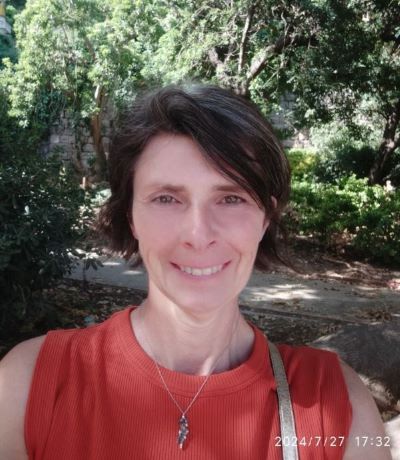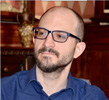Studying at the University of Verona
Here you can find information on the organisational aspects of the Programme, lecture timetables, learning activities and useful contact details for your time at the University, from enrolment to graduation.
Academic calendar
The academic calendar shows the deadlines and scheduled events that are relevant to students, teaching and technical-administrative staff of the University. Public holidays and University closures are also indicated. The academic year normally begins on 1 October each year and ends on 30 September of the following year.
Course calendar
The Academic Calendar sets out the degree programme lecture and exam timetables, as well as the relevant university closure dates..
| Period | From | To |
|---|---|---|
| Sem. IA (31.10.16 sosp.lezioni) | Oct 3, 2016 | Nov 12, 2016 |
| Sem. IB | Nov 14, 2016 | Jan 21, 2017 |
| Sem. IIA | Feb 27, 2017 | Apr 22, 2017 |
| Sem. IIB | Apr 24, 2017 | Jun 10, 2017 |
| Session | From | To |
|---|---|---|
| Sessione Estiva | Jun 12, 2017 | Jul 29, 2017 |
| Sessione Autunnale | Aug 21, 2017 | Sep 23, 2017 |
| Sessione Straordinaria | Jan 22, 2018 | Feb 24, 2018 |
| Session | From | To |
|---|---|---|
| Sessione Estiva | Jul 10, 2017 | Jul 15, 2017 |
| Sessione Autunnale | Dec 18, 2017 | Dec 21, 2017 |
| Sessione Invernale | Mar 23, 2018 | Mar 29, 2018 |
| Period | From | To |
|---|---|---|
| Festa di Ognissanti | Nov 1, 2016 | Nov 1, 2016 |
| Festa dell'Immacolata | Dec 8, 2016 | Dec 8, 2016 |
| Vacanze Natalizie | Dec 23, 2016 | Jan 7, 2017 |
| Vacanze Pasquali | Apr 14, 2017 | Apr 18, 2017 |
| Festa della liberazione | Apr 25, 2017 | Apr 25, 2017 |
| Festa dei Lavoratori | May 1, 2017 | May 1, 2017 |
| Festa del Santo Patrono - San Zeno | May 21, 2017 | May 21, 2017 |
| Festa della Repubblica | Jun 2, 2017 | Jun 2, 2017 |
| Vacanze Estive | Aug 14, 2017 | Aug 19, 2017 |
Exam calendar
Exam dates and rounds are managed by the relevant Humanistic Studies Teaching and Student Services Unit.
To view all the exam sessions available, please use the Exam dashboard on ESSE3.
If you forgot your login details or have problems logging in, please contact the relevant IT HelpDesk, or check the login details recovery web page.
Academic staff
 beatrice.bertelli@univr.it
beatrice.bertelli@univr.it
 donato.desilvestri@univr.it
donato.desilvestri@univr.it
Ganzerla Luca Giovanni Michelangelo
 lucagiovanni.ganzerla@univr.it
lucagiovanni.ganzerla@univr.it
 federico.melotto@univr.it; federicomelotto@hotmail.com
federico.melotto@univr.it; federicomelotto@hotmail.com

Migliorati Lorenzo
 lorenzo.migliorati@univr.it
lorenzo.migliorati@univr.it
 045802 8135
045802 8135
 andrea.nicolini.uni@gmail.com - andrea.nicolini@univr.it
andrea.nicolini.uni@gmail.com - andrea.nicolini@univr.it
 igor.pelgreffi@univr.it
igor.pelgreffi@univr.it
 stefania.pontrandolfo@univr.it
stefania.pontrandolfo@univr.it
 pieralberto.porcedducilione@univr.it; pierre_pordd@yahoo.it
pieralberto.porcedducilione@univr.it; pierre_pordd@yahoo.it
 045 8028732
045 8028732
Study Plan
The Study Plan includes all modules, teaching and learning activities that each student will need to undertake during their time at the University.
Please select your Study Plan based on your enrollment year.
1° Year
| Modules | Credits | TAF | SSD |
|---|
Cultural Anthropology
Developmental and educational psychology
Sociology and analysis of social dynamics
History of Philosophy
History of Education and Pedagogy
A course to be chosen among the following2° Year activated in the A.Y. 2017/2018
| Modules | Credits | TAF | SSD |
|---|
Teaching methodology and educational planning
Early Childhood Education
Theories and methods of cultural mediation
Computer Science and Multimedia
A course to be chosen among the followingA course to be chosen among the followingSocial and Cultural Geography
A course to be chosen among the following3° Year activated in the A.Y. 2018/2019
| Modules | Credits | TAF | SSD |
|---|
A course to be chosen among the followingA course to be chosen among the followingTheories and techniques of the primary socialization
A course to be chosen among the following| Modules | Credits | TAF | SSD |
|---|
Cultural Anthropology
Developmental and educational psychology
Sociology and analysis of social dynamics
History of Philosophy
History of Education and Pedagogy
A course to be chosen among the following| Modules | Credits | TAF | SSD |
|---|
Teaching methodology and educational planning
Early Childhood Education
Theories and methods of cultural mediation
Computer Science and Multimedia
A course to be chosen among the followingA course to be chosen among the followingSocial and Cultural Geography
A course to be chosen among the following| Modules | Credits | TAF | SSD |
|---|
A course to be chosen among the followingA course to be chosen among the followingTheories and techniques of the primary socialization
A course to be chosen among the following| Modules | Credits | TAF | SSD |
|---|
Legend | Type of training activity (TTA)
TAF (Type of Educational Activity) All courses and activities are classified into different types of educational activities, indicated by a letter.
Theories and techniques of the primary socialization [Cognomi M-Z] (2018/2019)
Teaching code
4S02381
Teacher
Coordinator
Credits
6
Language
Italian
Scientific Disciplinary Sector (SSD)
SPS/08 - SOCIOLOGY OF CULTURE AND COMMUNICATION
Period
Sem. 1A dal Sep 24, 2018 al Nov 10, 2018.
Learning outcomes
In the current context characterized by significant complexity, the course aims to provide an in-depth analysis of the sociological concepts of primary socialization, identity, difference and the theories, techniques, processes and languages related to them.
At the end of the course, the expected learning outcomes are related to the following areas:
A) KNOWLEDGE AND UNDERSTANDING
1. about the sociological aspects characterizing the concepts of socialization, primary socialization and identity;
2. about the main theoretical approaches to the study of primary socialization as a process to promote the construction of social identity, in relation to a socio-cultural context;
3. of socializing agencies that characterize the current context, with particular reference to the family and childcare services, paying attention to the related socialization techniques;
4. about the relationship between identity and difference, also through the concept of social "inferiorization" and stigma, starting from Erving Goffman's thought
B) ABILITY
1. in applying the knowledge learned from the literature in order to identify and describe the processes that lead to the construction of social identity and difference and recognize its values;
2. in recognizing, with different points of view, processes and stigmatizing languages, in order to promote positive and virtuous relationships;
3. in identifying and analyzing the various socialization agencies with particular regard to the family as the first area of socialization, in relation to its most recent changes, in relation to other agencies and the general context;
4. in using the concepts learned and the relative dimensions and characteristics, as a sort of "toolbox" to face professionals, today's complexity characterizing the socialization process.
Program
To achieve these objectives, the course will deal with the following topics:
• A changing context: "liquid" modernity and complexity
• The socio-cultural system and the learning of roles
• Primary socialization and socialization: from the contribution of the classics to the current perspectives of study
• Socialization, identity and difference
• The family as a primary socialization agency
• Socialization and "extrafamily" agencies: childcare services, peer group, media
• How to socialize: relationship and communication
• Stigmatization and social inferiorization
• Types of stigma
• Stigma and social relations
The topics present in the program will be introduced during the lessons and can be found in the following reference texts:
- Landuzzi M. G., La socializzazione primaria e le sue caratteristiche, Ed. Libreria Cortina, Verona, 2016
- Goffman E., Stigma. L'identità negata, Ombre Corte, Verona, 2003
The didactic modalities adopted in the classroom foresee the use of:
- lectures, dedicated to the transmission of the basics and the key-categories, useful for the implementation of theoretical knowledge;
- interactive lessons, characterized by the analysis of films and illustrative material, from the common discussion, group work, exercises and where possible, from the relationship with privileged witnesses. These lessons aimed at improving learning skills, applied comprehension, team work , relationship and communication.
Throughout the academic year, the teacher is available for individual reception by appointment.
The monthly calendar of receptions is published on the web under "notices".
The program is valid for everyone (attending and not attending), until the last appeal of February 2020.
Erasmus students are requested to contact the teacher at the beginning of the course.
| Author | Title | Publishing house | Year | ISBN | Notes |
|---|---|---|---|---|---|
| Landuzzi Maria Gabriella | La socializzazione primaria e le sue caratteristiche | Edizioni Universitarie Cortina | 2016 | 978-88-7749-195-4 | |
| Goffman E. | Stigma | Ombre Corte | 2003 |
Examination Methods
The assessment of the learning outcomes is the same for everyone (attending or not) and includes a written test and an oral test; the final evaluation is expressed in 30/30.
- The written test consists of a multiple choice test. It is aimed at ascertaining the ability to learn and the degree of knowledge of the topics in the program. The correction of the test takes place at the end of the test itself. Only those who have gained a score of not less than 18/30 will be admitted to the oral exam.
- The oral exam consists of an in-depth discussion of parts of the program and is evaluated with a score from 0 to 6, which is added to that obtained in the written test. This test wants to verify:
- communication skills and language ownership
- the ability to connect knowledge in a systemic way
- analytical skills and comparison between different points of view.
Type D and Type F activities
Modules not yet included
Career prospects
Module/Programme news
News for students
There you will find information, resources and services useful during your time at the University (Student’s exam record, your study plan on ESSE3, Distance Learning courses, university email account, office forms, administrative procedures, etc.). You can log into MyUnivr with your GIA login details: only in this way will you be able to receive notification of all the notices from your teachers and your secretariat via email and also via the Univr app.
Graduation
Documents
| Title | Info File |
|---|---|
|
|
pdf, it, 109 KB, 12/07/24 |
|
|
pdf, it, 112 KB, 14/05/24 |
List of thesis proposals
| theses proposals | Research area |
|---|---|
| Ambienti e contesti di lavoro con minori | Various topics |
| Analisi dei personal network di sostegno | Various topics |
| comunicazioni relative alla tesi | Various topics |
| Il teatro come contesto educativo | Various topics |
| I processi di globalizzazione culturale nella società contemporanea | Various topics |
| La social network analysis applicata allo studio dei contesti educativi | Various topics |
| L'educatore ed i progetti europei | Various topics |
| L'impegno associativo in ambito educativo | Various topics |
| Politiche sociali e contesti educativi | Various topics |
| Progetti di collaborazione con le istituzioni scolastiche | Various topics |
| PROPOSTE TESI AMBITO GEOGRAFICO | Various topics |
| Scuola e capitale sociale | Various topics |
Linguistic training CLA
Gestione carriere
Student mentoring
Practical information for students
Documents
| Title | Info File |
|---|---|
|
|
pdf, it, 325 KB, 16/07/24 |
|
|
pdf, it, 212 KB, 02/05/23 |
|
|
pdf, it, 131 KB, 02/05/23 |
Stage e Tirocini
Le ulteriori attività formative (crediti F) sono interamente coperte dall’attività di tirocinio “indiretto” (1 cfu) da svolgersi nel secondo anno e di tirocinio “diretto” (14 cfu) da svolgersi presso enti convenzionati per un numero complessivo di 15 cfu (375 ore). Chi è iscritta/o al curriculum servizi per l’infanzia è tenuta/o a svolgere il tirocinio presso nidi e servizi per la prima infanzia per almeno il 50% delle ore.
Il tirocinio professionalizzante (375 ore, pari a 15 cfu), è obbligatorio sia nella sua forma diretta che indiretta.
Il tirocinio indiretto, della durata di 25 ore a frequenza obbligatoria al 75%, si svolge in Università per 20 ore e in forma di lavoro individuale per 5 ore e consiste in un accompagnamento iniziale delle/degli studenti da parte dei tutor attraverso un percorso formativo dotandoli di conoscenze e strumenti adeguati a osservare, comprendere e rielaborare criticamente l’esperienza di tirocinio nei servizi educativi e ad affrontare il tirocinio negli enti con metodo e consapevolezza. Il percorso, da attuare in gruppi da 20-25 persone sotto la supervisione di un tutor, risponde alle esigenze costantemente espresse sia dalle/dagli studenti stessi sia dalle parti sociali che dai referenti degli enti convenzionati.
Il tirocinio diretto si propone di raggiungere i seguenti obiettivi:
- fare esperienza diretta di attività professionali, che richiedono un livello di preparazione al lavoro educativo;
- approfondire in particolare il rapporto tra preparazione teorica, acquisita mediante lo studio, ed esperienza pratica, tra mondo del sapere e della cultura e mondo del lavoro e delle professioni;
Al termine del tirocinio diretto lo studente deve presentare una relazione scritta, nella modalità concordata con il tutor accademico.
Nuove Linee Guida per il tirocinio di Scienze dell'educazione.
- Tutte le informazioni in merito agli stage per futuri studenti sono disponibili alla pagina Stage e tirocini.
- Tutte le informazioni in merito agli stage per studenti iscritti sono pubblicate in MyUnivr - come fare per - stage e tirocini.
- Tutte le informazioni in merito agli stage per le aziende sono disponili alla pagina Stage e tirocini per azienze.
Documents
| Title | Info File |
|---|---|
|
|
pdf, it, 302 KB, 16/07/21 |
Student login and resources
Modalità e sedi di frequenza
La frequenza non è obbligatoria.
Maggiori dettagli in merito all'obbligo di frequenza vengono riportati nel Regolamento del corso di studio disponibile alla voce Regolamenti nel menu Il Corso. Anche se il regolamento non prevede un obbligo specifico, verifica le indicazioni previste dal singolo docente per ciascun insegnamento o per eventuali laboratori e/o tirocinio.
È consentita l'iscrizione a tempo parziale. Per saperne di più consulta la pagina Possibilità di iscrizione Part time.
Le sedi di svolgimento delle lezioni e degli esami sono le seguenti
- Polo Zanotto (vicino si trova il Palazzo di Lettere)
- Palazzo ex Economia
- Polo Santa Marta
- Istituto ex Orsoline
- Palazzo Zorzi (Lungadige Porta Vittoria, 17 - 37129 Verona)
- Chiostro Santa Maria delle Vittorie, Lungadige Porta Vittoria, 41





















